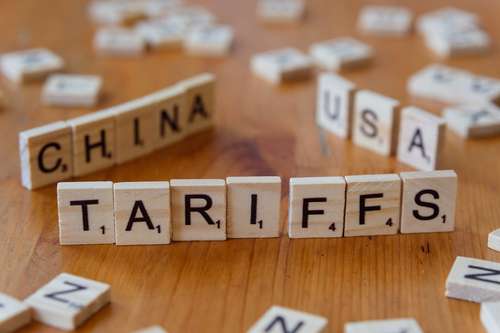The 2024 US Presidential Election is heating up as former President Donald Trump and Vice President Kamala Harris battle for the right to occupy the Oval Office. Americans are prepared to once again contribute to a unique voting system that has shaped presidential elections for a long time.
While millions will cast their ballots today, November 5, 2024, the winner won't be determined by who gets the most votes nationwide. Almost anti-logical, but there's a method to the supposed madness. Instead, the fate of the presidency will rest in the hands of the Electoral College. Do you have a clue about what that entails? Let's see about that.
Understanding the Electoral College System
First things first. The path to the White House requires one specific number: 270. This figure represents the minimum Electoral College votes needed to secure the presidency. With a total of 538 electoral votes up for grabs across all 50 states and the District of Columbia, a candidate must secure a majority to become the undisputed winner of the presidential race. Okay, so what then is this Electoral College?
A little myth busting: the Electoral College isn't a physical place. Silly, but you never know. Instead, it's a process that has been part of American democracy since the nation's founding. You see, when voters head to the polls, they're actually voting for electors who have pledged to support their state's winning candidate. These electors, totaling 538, represent the combined number of senators and representatives each state has in Congress.
Why Does the Electoral College Exist?

Great question. The Founding Fathers established the Electoral College as part of a checks-and-balances system. At the time, they believed states should choose the President rather than relying on direct voter input. Keep in mind that democracy was a relatively new concept at this time. John Sacher, a history professor at the University of Central Florida, explains that the system also reflected concerns about granting too much power to voters. The Founders were scared that they might make terrible choices.
Historical factors also influence the creation of the Electoral College. For example, the three-fifths compromise counted enslaved people as a fraction of the population. This gave Southern states greater representation without allowing the enslaved to vote.
How Many Electoral College Votes Does Your State Have?
The distribution of electoral votes varies by state. It's based primarily on population. Each state receives a specific number of electoral votes based on its congressional representation (senators and House members). Here's how it breaks down:
- California leads with 54 electoral votes
- Large states like Texas follow with 40 votes
- Smaller states such as Alaska, Delaware, North Dakota, South Dakota, Vermont, and Wyoming each have the minimum of three votes
- The District of Columbia, though not a state, receives three electoral votes
The Winner-Takes-All System and Swing States
In most states, election permutations are simplified by the "winner-takes-all" rule. This means the candidate who wins the popular vote in a state, even by a slim margin, typically receives all of that state's electoral votes. However, Maine and Nebraska use a different system. They allocate their electoral votes proportionally based on congressional districts.
This system makes swing states crucial in presidential elections. These battleground states, where voters don't consistently favor either party, often determine the election's outcome. In the current US Elections 2024, both Donald Trump and Kamala Harris focused significant campaign efforts on these pivotal states.
The Timeline
The process follows a strict timeline:
- Election Day: November 5, 2024
- State Dispute Resolution Deadline: December 10, 2024
- Electoral College Meeting: December 17, 2024
- Congressional Certification: January 6, 2025
- Inauguration: January 20, 2025
What Happens If No One Reaches 270?

That's quite rare, but never rule out the chances. In the scenario where no candidate reaches 270 electoral votes, the election will move to Congress, where:
- The House of Representatives chooses the President, with each state delegation getting one vote
- The Senate selects the Vice President, with each senator casting one vote
- A candidate needs 26 state delegation votes in the House to win
Controversial Aspects
While the process dates back centuries, the Electoral College system has not been without its controversies. It has sparked debate, particularly when candidates win the presidency without securing the popular vote. A recent example was the 2016 election, where Trump secured the presidency despite Hillary Clinton winning the popular vote by nearly 3 million votes. The Electoral College has now bypassed the popular vote winner five times in U.S. history.
Statistics suggest a lot of people don't quite fancy the system. According to a recent Pew Research Center poll, 63% of Americans favor abolishing the Electoral College. Support for the popular vote, however, is strong among Democrats (80%), while 46% of Republicans support the current system. Despite more than 700 attempts to reform or abolish it, the Electoral College remains.
Selecting Electors and Rogue Votes
Each state has its own method for selecting electors. However, the general rules bar current senators, representatives, or federal officeholders from serving. Also, those who supported an insurrection are disqualified as well.
The system also includes protections against "faithless electors." You know, those who might want to break their promises and vote against their state's popular vote choice even though electors typically vote as pledged. Back in 2016, seven electors actually voted contrary to their party’s candidate. Thirty-five states have laws against this, with penalties ranging from fines to potential criminal charges and disqualification. However, no faithless elector has ever changed an election’s outcome with their rogue votes.
Looking Ahead
The Electoral College, despite its controversies, remains the constitutional method for selecting America's president. As Vice President Kamala Harris and former President Donald Trump make their final push to secure the presidency, their hopes would be on locking down those crucial 270 electoral votes. For the American people, understanding the Electoral College system remains important. We hope this explainer has kept you informed in the midst of this historic election.




